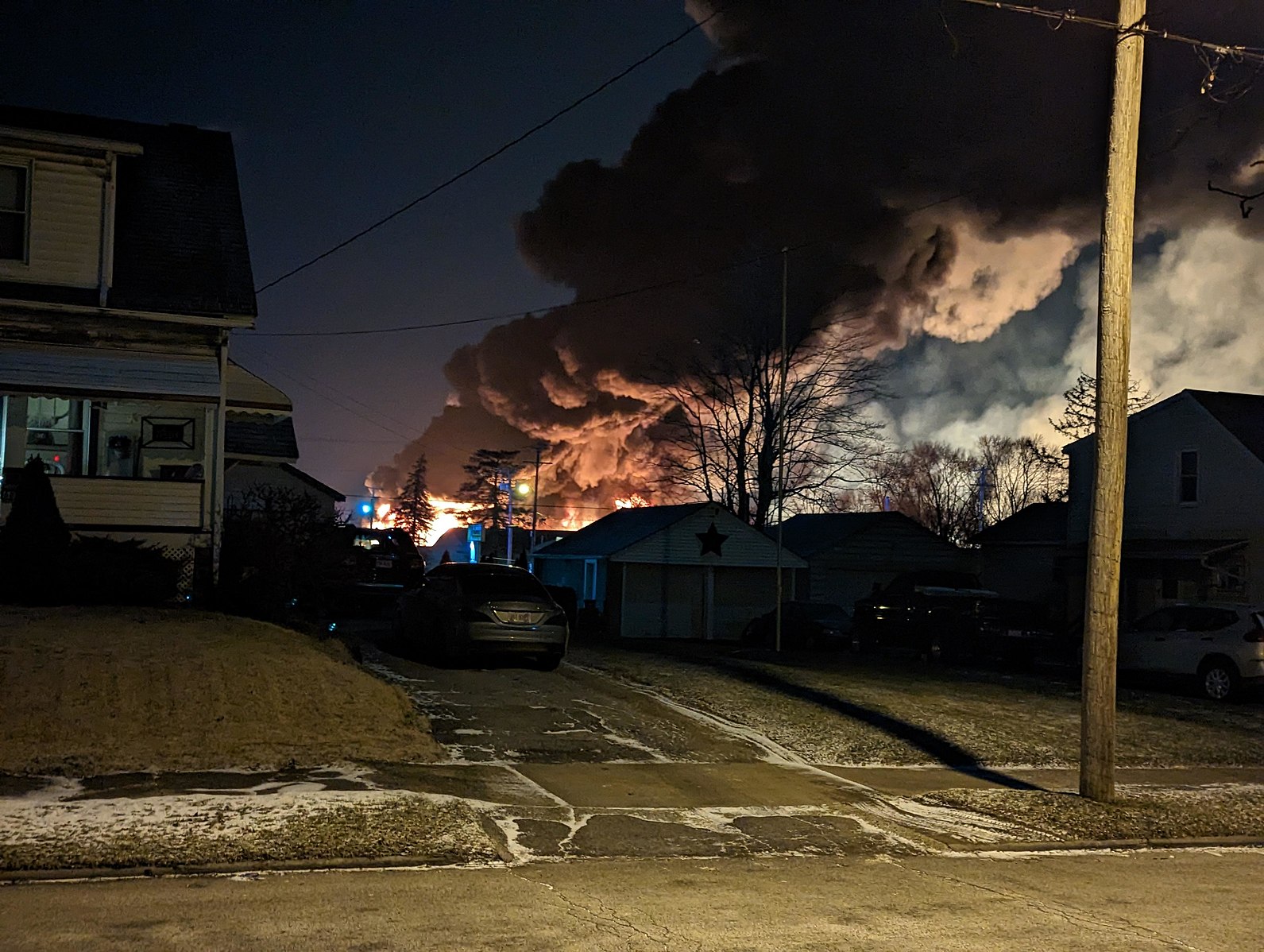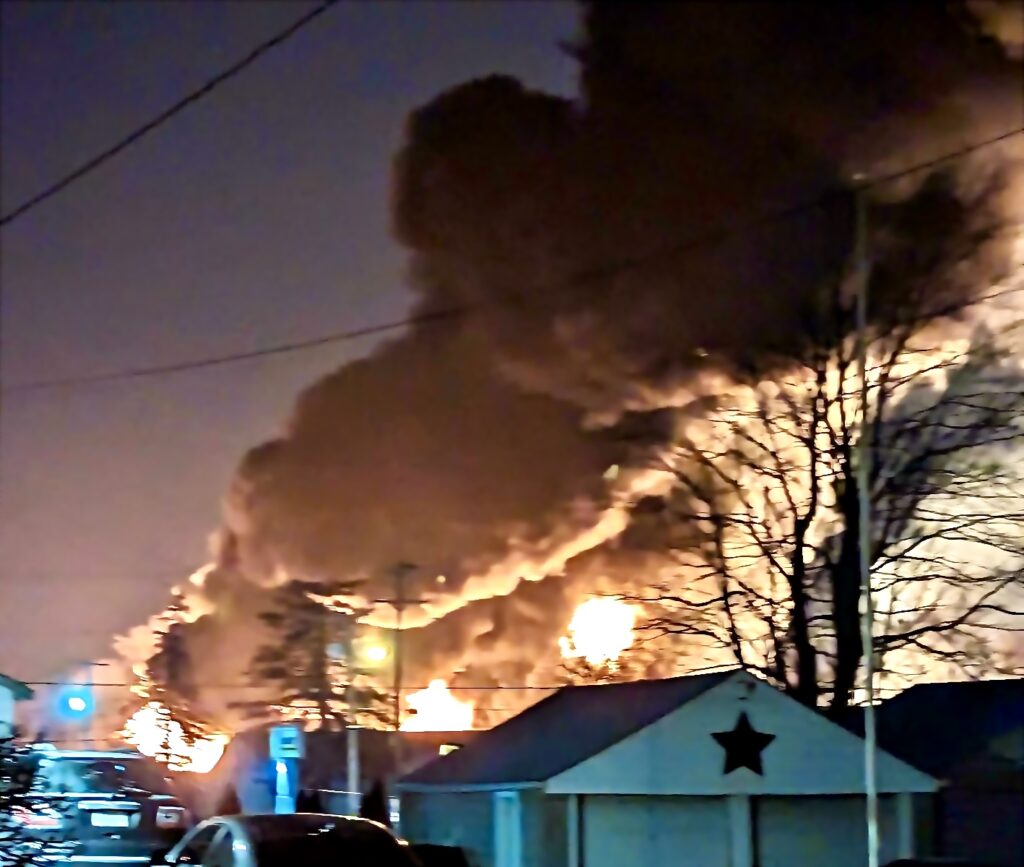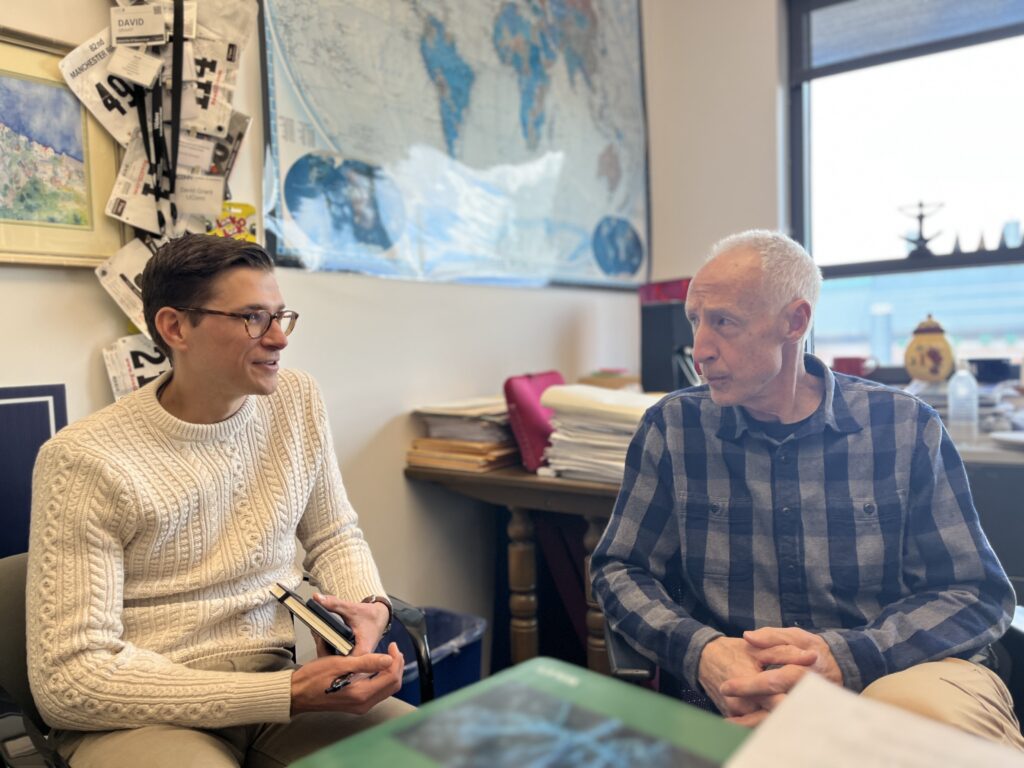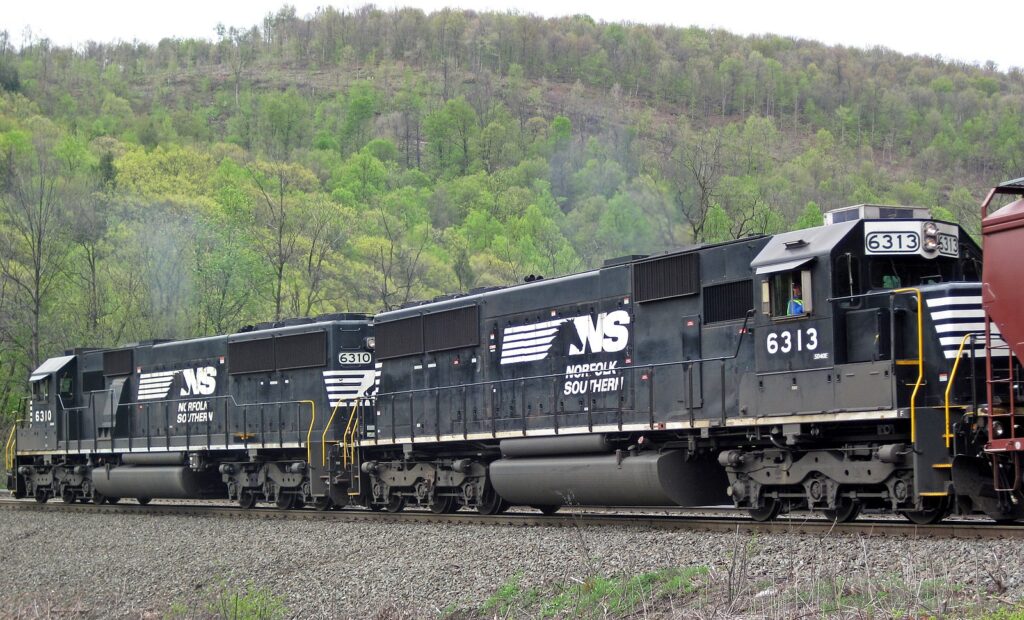
Wikimedia Commons/CC BY-SA 4.0

Wikimedia Commons/CC BY-SA 4.0
Two weeks after an Ohio train derailment that resulted in a vinyl chloride spill, David Grant, a professor of pharmacology and toxicology at the University of Connecticut, and several of his colleagues, sat in his office after a lunch break and discussed the February 2023 incident, along with its impact on human health, society, and environmental aspects.
Grant looked at a map that went viral on the internet, showing two concentric circles with the inner one marking the “First risk area” and the outer one marking the “Secondary risk area.” Some locations on the map are marked with “heavy dark clouds spotted” and “acid rain reported,” indicating where people’s health and ecology within the circle may be at risk. The map had reaped tens of thousands of retweets and shares online, with people commenting and asking for advice on what to do.

Grant laughed helplessly as soon as he saw the map. “There’s no way this could be a circle because the weather pattern would move everything to the east with the prevailing winds,” he said. “So the fact that this is drawn in a circle means that it’s just someone’s wild idea because there should be nothing over here.”
Grant also noted the map had no official source or creator, but that didn’t stop it from causing panic among those who had seen it. People were sharing the map as if it were fact, with comments like, “I feel like it’s having a bigger impact than Chernobyl,” “The supermarkets are running out of bottled water again,” and “I see dead birds and frogs in my backyard.”
“It just goes to show how easily misinformation can spread on social media, even in the face of easily verifiable facts,” he said.
Given the well-controlled condition of the spill and the remote location, there is no need for residents of other states to worry about being affected. “Because even if it is a toxic substance, it has to be judged by the concentration and time of absorption to determine whether it is indeed harmful to humans,” said Cody Smith, assistant professor of pharmacology and toxicology at UConn.

Still, many in Ohio and other outlying states are concerned that these toxic substances are entering the water cycle, the atmosphere, and the soil, thus affecting the health of humans and the local environment.
Animal studies conducted by the Department of Health and Human Services have shown that exposure to 50 ppm(parts per million) of vinyl chloride in the air increases the risk of liver cancer.
However, the U.S. Environmental Protection Agency tested at least 480 homes around East Palestine where the derailment occurred and did not detect vinyl chloride.
Also, according to CDC calculations, it takes more than 30 minutes of exposure to 17 ppm of phosgene (the combustion product of vinyl chloride) to be lethal, and this incident resulted in a much lower spill concentration than that.
“I don’t think anyone’s going to be exposed long enough or at high enough levels to be concerned with liver cancer or death,” Smith said.
Grant concurred with Smith’s assessment.
“Most of the chemicals in the train cars were relatively volatile, unstable compounds. Their biological and environmental half-life(the time required for a biological system, such as that of a human, to eliminate, by natural processes, half of the amount of a substance that has entered it) is relatively short. So they’re not going to stay around too long,” he said.
Grant also noted that the response team practice, combusting the vinyl chloride at the site, was the best option at the time because another riskier practice was to bury these hazards in the ground.
“It’s better to burn these chemicals and get rid of them than to bury them in the ground and have them potentially leach into the groundwater or someone’s basement,” Grant said. The United States Environmental Protection Agency has determined that drinking water containing 2 ppb of vinyl chloride over a lifetime increases cancer risk by one in 10,000. Also, water containing vinyl chloride may inhibit vegetation growth.
Kristina Wagstrom is an associate professor of environmental engineering at UConn. She explained how complex the situation is regarding cleanup and described the options available to agencies on how to do so.
She agreed with Grant that combusting vinyl chloride is the best option to avoid leaching into the soil and groundwater, which would take longer to degrade.
Wagstrom also pointed out that if the vinyl chloride is not burned, there will be a risk of explosion, which will have a more significant impact.
“With the controlled burn, less vinyl chloride will be released directly because they can ensure that everything’s combusting as it’s released,” she said.
“Over time, the concentration of vinyl chloride will decrease with atmospheric volatilization and will not pose a threat to humans,” Grant said, “You can calculate the concentration of vinyl chloride in the air. And I would bet you would find that the concentration would be so low that it’s probably a very, very, very low risk to anyone.”
In addition to human health, people are concerned about the ecological system may take a very long time to recover. Using a calculation endorsed by the American Fisheries Society, the Ohio Department of Natural Resources(ODNR) estimated that approximately 38,222 minnows and around 5,500 other aquatic species were potentially killed in the 5-mile span of waterway affected by the derailment.
ODNR Director Mary Mertz said none of the species killed are threatened or endangered.
“Because the chemicals were contained, we haven’t seen any additional signs of aquatic life suffering,” she said.
In response to reports of dead birds and an opossum in the area, ODNR sent the animals to the Ohio Department of Agriculture for testing, which found no signs of chemical poisoning.
“We have no reason to believe that those terrestrial animal deaths were as a result of the spill,” she said.
Grant also has an optimistic view of wildlife.
“A healthy, diverse environment can make environmental problems disappear and help the environment recover. Even though some species are sensitive, it’s only a matter of time before they all return, especially in a stream or an aquatic ecosystem like this, where fresh water is coming in all the time, and new species are drifting in the water,” Grant said.
However, in addition to the direct impact of this incident, society also expressed concerns about rail safety and the transportation of hazardous materials.
According to Federal Railroad Administration’s data, Norfolk Southern, the railroad company whose train was involved in this incident and which transports goods across nearly 20,000 miles of rail in 22 states, has reported the second-highest accident rate nationally among the seven major freight railroads each year since 2019. It has reported an average of nearly 261 accidents a year and roughly three accidents per million train miles.

The number of Norfolk Southern train accidents in Ohio also has ticked up. The company has reported an average of 32 train accidents a year in Ohio during the past five years, compared with an average of 24 during the previous five-year span, according to its accident reports.
The transportation of hazardous materials has always been a highly controversial issue because there is no one perfect way to transport them, whether by railroads or highways.
Norfolk Southern reported that an average of 871 cars a year carried hazardous materials during the past five years, compared with 184 cars with hazardous materials in the previous five-year span.
Also, according to the CT mirror, the hazardous chemicals are traveling on highways in Connecticut, albeit in smaller truck-sized loads, but they are no less likely to cause explosions or damage if they’re involved in an accident.
For Grant, this is a risk versus cost problem with no single optimal solution.
“Companies that use these chemicals could potentially make them on-site. And then there would be less transportation, but that would be very costly for someone who needs the chemicals to make it themselves. It might even make the potential risk worse because now you’ve got toxic chemicals all over the country being made in a factory somewhere, and people don’t even know it,” Grant said.
As the study progressed, the incident revealed many unaddressed social issues.
“There are still some questions on the overall impact, and this is going to be something that gets looked at for years to come,” said Wagstrom. “As far as transport within the environmental matrix, the dioxins (another combustion product of vinyl chloride) that might have formed from the combustion and how they may have deposited still needs to be examined.”
“I think the railroad industry will need to be more diligent in monitoring the safety of their transportation system and stricter oversight of hazardous chemical shipments to avoid similar incidents,” Grant said.